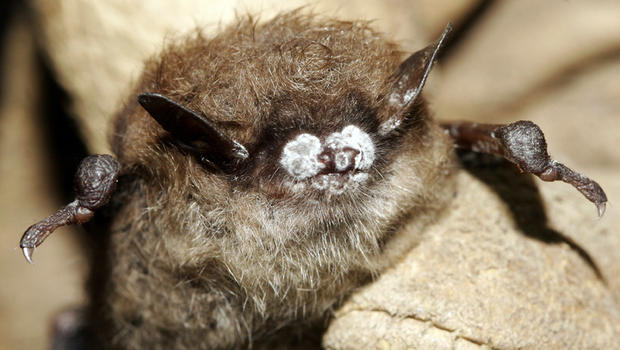Bat encounters can put you at risk for rabies — Interior Health
Interior Health is advising the public of the importance of avoiding physical contact with bats, the primary carrier of the rabies virus in B.C.
IH said rabies is a very serious disease that affects the nervous system and is almost always fatal if not treated in time.
In 2016, 61 people in the Interior Health region were treated for potential exposure to rabies.
“Between four and eight per cent of the bats that are tested after coming into contact with people are found to have the rabies virus,” Lesley Coates, Communications Consultant for Interior Health said in a media release.
“Infected bats can transmit rabies to humans when their saliva comes into contact with a person’s mucus membranes (eyes, nose, and mouth) or through a break in the skin.”
Interior Health said with the long weekend happenig, many people will be bringing summer gear out of storage or heading out to open the cabin.
Activities like these can lead to unexpected encounters with bats. Bats often fly into poorly sealed cabins and homes, they roost in attic spaces and they can even be found hanging inside closed patio umbrellas.
Interior Health offers these tips to help protect yourself and your family:
- Never touch live or dead bats. Tell children not to play with or touch bats.
- Make your home or cabin “bat proof.” Keep doors and windows closed, make sure window screens don’t have any holes, and keep the attic area free of bats by keeping all vents properly screened and by closing off other openings.
- If you find a live bat in a room of your home, open the window and close interior doors until the bat leaves.
- If your home or workplace is inhabited by bats, seek professional bat-control advice from a pest control or wildlife specialist. Bats are a protected species under the BC Wildlife Act. Excluding or evicting bats from their roost site so they move to another roost is the best way to remove bats.
- Avoid locations or activities where bats are likely to be found (e.g., caves).
- If you have a pet dog, cat, or ferret, make sure they are vaccinated regularly against rabies. Pets that were born and raised in B.C. pose a very low risk of transmitting rabies to humans; however, vaccinating your pets will protect them from rabies. If your pet has come in contact with a bat, contact your veterinarian to discuss the risk of rabies to your pet.
Interior Health said all contact with bats should be taken seriously. Bats have tiny sharp teeth and claws, so scratches or bites may not be visible or painful but could still be there.
Anyone who has been bitten or scratched should:
- Thoroughly wash the wounds with soap and water.
- Contact your local public health unit or family doctor immediately. Do not wait for symptoms to appear.
- Call a wildlife or pest control company to capture the bat. If trying to capture the bat yourself, avoid contact by wearing leather gloves, a hat, long sleeves, and pants.
- Safely contain the bat in a secure, covered container to prevent others from being exposed. Keep the bat in a safe location until public health can arrange to pick it up and test it for rabies.
“Early treatment is crucial to prevent rabies from progressing,” said Coates. “Treatment involves a two-week period of vaccinations that must be administered as soon as possible after exposure.”
For more information:























Comments